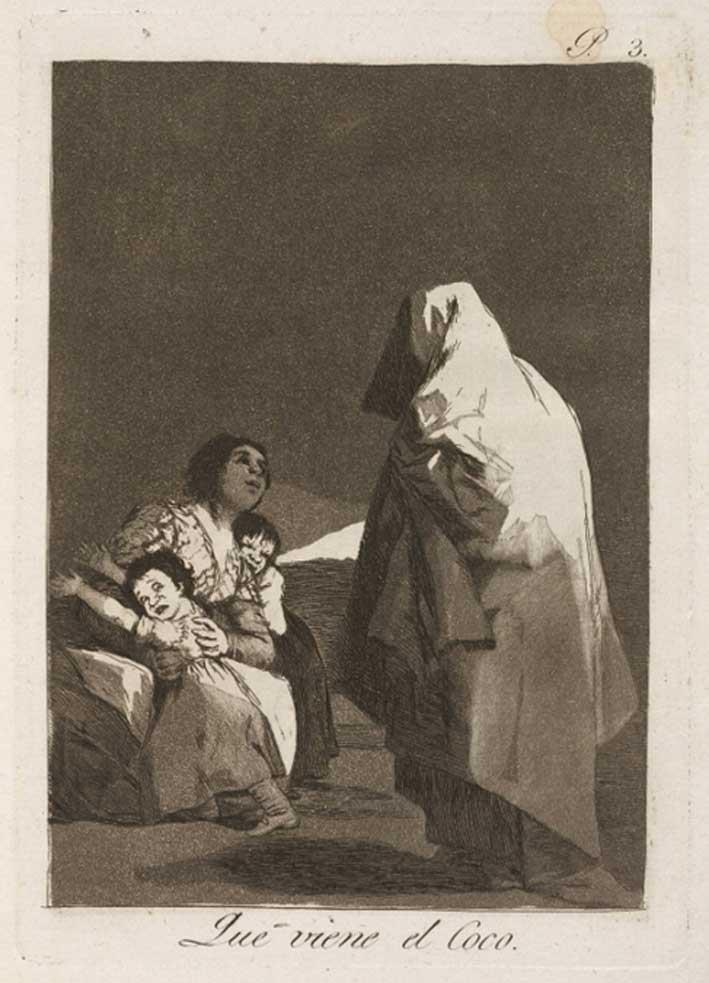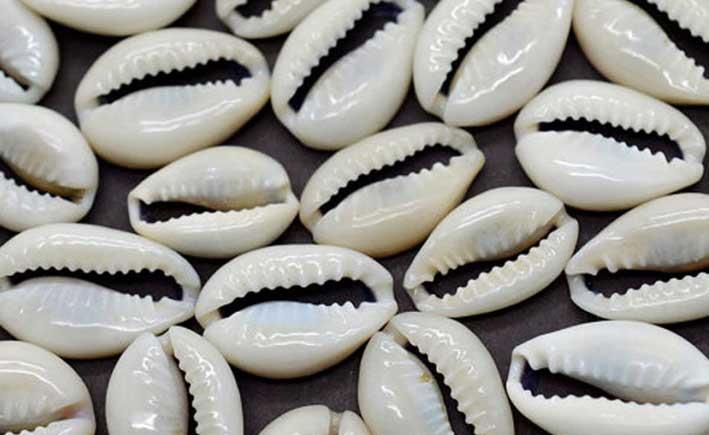The presence of many cultures within our midst, such as the Phoenicians, Greeks, Carthaginians, Romans, Arabs, Normans, and Knights continued to leave a footprint on these islands and contributed further to some of these usages.
This two-feature dwells on some of these beliefs which persisted down through the centuries as others declined through education and with the arrival of modern and post-modern times.
This two-part feature is based on a book by V. Busuttil, who was headmaster at the Government School in Vittoriosa in 1894, titled Holiday customs in Malta and sports, usages, ceremonies, omens & superstitions of the Maltese people.
An omen in popular belief is of prophetic significance. It is an event regarded as a portent of good or evil. For instance, in many cultures it is believed that the raven is a bird of evil omen.
St Paul's tongue
It was popular belief among our ancestors that the teeth of fish, which we find embedded in some of the rocks, are St Paul's tongue, which during his sermons penetrated even the solid rock. These fossils were pounded and the powder was held to possess a miraculous power in healing wounds.
Some of our country folks used to carry one of these teeth about with them, sometimes mounted on silver and hung around their neck, as an amulet against the bites of venomous vipers - at one time very abundant in Malta.
The Gaugau
In M. A. Vassalli's Dictionary, we read that: "Among the silly superstitions of the Maltese there still exists that which a human being can be changed or turned into a Gaugau."
Many women and children, therefore believed that those who were born on Christmas Eve, just at the very time when our Lord was born, will continue until their death to be transformed into a ghost while asleep, every year just on Christmas eve. They then would go out and wander about all over the Island frightening people with their groaning. After performing these ghostly pranks for some hours, these transformed creatures returned home towards dawn quite exhausted and woke in the morning quite unconscious of what had taken place during their nocturnal expedition.
This yearly punishment is thought to have been inflicted, as our Saviour does not like any one to be born at the same time He was born!!
In order to give confirmation to this strange fancy, some of our silly females of the time affirmed that they frequently go in search of their husbands and children, and from midnight until about 4 am, they did not find them in the bed where they had left them.
Others, who were still more superstitious, added to this foolish belief by saying that a person may get rid of this annual transformation by taking a sieve and spending from 11pm till Christmas morning at dawn counting the holes.
"We are unable to explain," goes on to say Vassalli, how this superstition got into the minds of our forefathers. We only know that the word: "Gaugau is derived from the Syrian word ħagogo, which means a host and most probably was introduced here by the Phoenicians."

The Bogey-man
The ancient Maltese thought, and insisted upon others believing, that the Bogey-man wanders about our streets during winter nights.
The Bogey-man was described as a hideous animal partaking of the nature of an ox, a ram and a donkey, going about until it comes to the first house which had been unfairly possessed, in order that with its hideous cries might frighten the occupants.
Parents and nurses used to be in the habit of frightening the little ones with the Bogey-man in order to induce them to go to sleep.

Passion flower
When a women was about to give birth she would send one of her neighbours for the loan of a withered flower called the Passion flower, which was put at once into the water. As soon as the flower opened, they believed the woman would be delivering the child.
It is true that the rose opens after remaining in water for some time, although quite withered, but the fanaticism of some of the people was really excessive. A certain man related that his wife was about to be confined and one of the neighbours brought her a passion flower, in the confusion that prevailed at the moment, however, the withered flower was thrown into a drawer and they forgot about it.
Shortly after the woman was delivered of three sons. The flower, however, was not to be seen. One of the household members then remembered that it was left in a drawer. What was astonishing on opening that drawer, was to find that on the stem of the withered flower were brought forth three branches covered with leaves!

The evil eye
Many of our people still believe in the evil eye and are of the opinion that there are individuals who possess the power of inflicting injury by merely looking on those whom they wish to harm. It is however believed that any one who had been influenced by the evil eye of another, must procure a piece of cloth from the dress of the person by whom he had been fascinated, burn it and expose himself to the smoke of it and the effects of the evil eye will thus be removed.
Various charms were practised for counteracting the baneful influence of this cruel species of witchcraft. Some of the main rituals consisted of spitting or making a big cross with the thumb on the belly while saying the words, toħroġ il-għaġeb. This is from where we got the expression, oħrog il-għaġeb in our colloqual.
Sticking some brown wax, from the candles used during the Holy Week service, to the heads of the children or animals was another practice. Some, again hung a sort of a sea-shell called baħbuħa round the necks of their little ones, or cattle, to make them impervious to its effects. A pair of horns were also used by some as a charm to avert the evil eye.
The ghost of the house
Some of our people believed in what they called Il-hares - and some of the countryfolk still say that this ħares exists in the shape of an old black serpent which guards the house and bestows riches and good luck on the children born in that house.
It was held extremely unlucky to kill the old black serpent, as after its death it was believed that great misfortunes would befall the members of the family.
Good luck
Many believed in their fortune or luck (especially maidens) according to the figures formed by melted lead.
On the feast of St John, some lead was melted and immediatley poured into a vessel containing water and according to the figure or shape it assumed when it solidified so would be the fortune of the person who tried the experiment. If the lead became bright the maiden was to get a handsome young man as her husband and lead a happy life with him; if it turned out black, the husband would be ugly and the maiden expected to lead a miserable life.
The Bath
On Easter Sunday, as soon as the Gloria is sung in the Churches, mothers dipped their babies into a bath, in which were thrown some flowers which were used to decorate the sepulchre on Good Friday.
This, the mothers did to cure their infants from any fright they may had taken.
Some mothers dipped their other children in succesion in the same bath when the baby was taken out, and they they did in order that their children might not inherit the fright the one from the other.

The Foot Bath
Some people used to say that when you bathe your feet in hot water, while under the influence of fever, or headache, a little salt should be added to the water to strenthen it. But in order that the salt wold produce itws efects it had to be thrown by a married woman and not by a maiden.
Il-Għaġuża
There was an old custom in Malta to make children believe that the għaġuża (the oldest woman living in the parish) is killed at noon on Thursday, the middle of Lent.
Mothers after fasting the twenty days of lent, send their children to the door of the parish church, or of some onvent to see the sexton or some friar throwing the old woman from the steeple down below.
The disappointment of the children was indeed very great when at noon, they did not see the għaġuża thrown down.

The Itching of the Eye
The itching of the eye was considered as an unlucky omen. Grose, celebrated antiquaian who collected together so many of the superstitions prevalent in his day, says, 'When the right eye itches the party affected will shortly cry.'
The Itching of the Hand
Among other omens we were told that the itching of the hands signifies that they will shortly receive money

Howling of Dogs
A serstititious opinion vularly previled in Malta that the howling of a dog in a nieghbourhood is the presage of death to any that are sick in it. The howling of the dog is ascribed by some to its keen sense of he odour of approaching dissolution.
This superstition which, wile not confined to our Islands appears to have been almost as well known in ancient times.
Dr. Nathaniel Home, in his 'Doemonologie' says, 'if dogs howl in the night near a house where somebody is sick, it is a sign of death.'
Capitolinus tells us, 'that the dogs by their howlings presaged the death of Maximus.'
Tingling of the Ear
It was a well known superstition among the Maltese that when the ear tingles, they usally say that somebody is talking of them. A tingling of the right ear donoted hat a friend was speaking well of one; a tingling of the left, implying the opposite.
The opinion, from whence this proverial saying was derived, is of great antiquity, being thus mentioned by Pliny, 'Moreover is not this an opinion generally receoigved that when our ears do glow and tingle some there be that in our absence do talk of us?'
Meeting of women
If two women who have been confied on the same day meet before forty days, one of them will suffer some misfotune either in her own person or in that of her child.
The Month of May
May is considered as the month of accidents, and consequently many believfed that those who get married during this month would be unfortunate.
The Church Organ
Many of our country people wanted the organ to be played during the mass which is celebrated at their wedding, for they believed that if it was not played, the couple would not live long together. To show how much some of our countrymen believed in this superstition, P.P. Castagna, gave the following anecdote in his 'Storia ta Malta.'
Not long ago a young man went to church at Chircop to get married. On fidnin, however, that the organist did not turn up to play during the mass, he took off his coat threw it on the floor and went out in a rage, and could not be persuaded to go back to his wedding before the organist could be found and the organ played for the ocasion.
Paying Visits
If a person went out to pay a visit, for the first time, to a party and was not treated with a sort of drink called,żambur (made of aniseed) a mouse would enter the chest of drawers and grawed all the petticosts of he misress of the house.
Sending to the Oven
Some people thought it a great shame for a woman who sent dishes to be ooked in an oven when her husband was away from the Island.
Light Omens
If a woman wished that either her husband or her son would return from abroad, she was to light a lamp and leave it behind the entrance door. If the party expected did not return on the following morning, she was to light the lamp again and on the following night and keep doing so until at last she would see her dear one entering the house.
Balsam
Those among the Maltese who wished to hae a balsam that possesses the property of healing all kinds of wounds, ake an egt that had been laid on the 25 March, Laedy Day, hide it within a upboard or on a shel, in a dark place, aned at the end of a year hey begin to use it as a sovereign and unfailing remedy.

The Acacia or Sponge-Tree
Our ancestors had a strong aversion to introducing or bringing in the Acacia or sponge-tree with other flower-plants in the house. They believed that if the Acacia were brought into the house the head would die within twelve months.